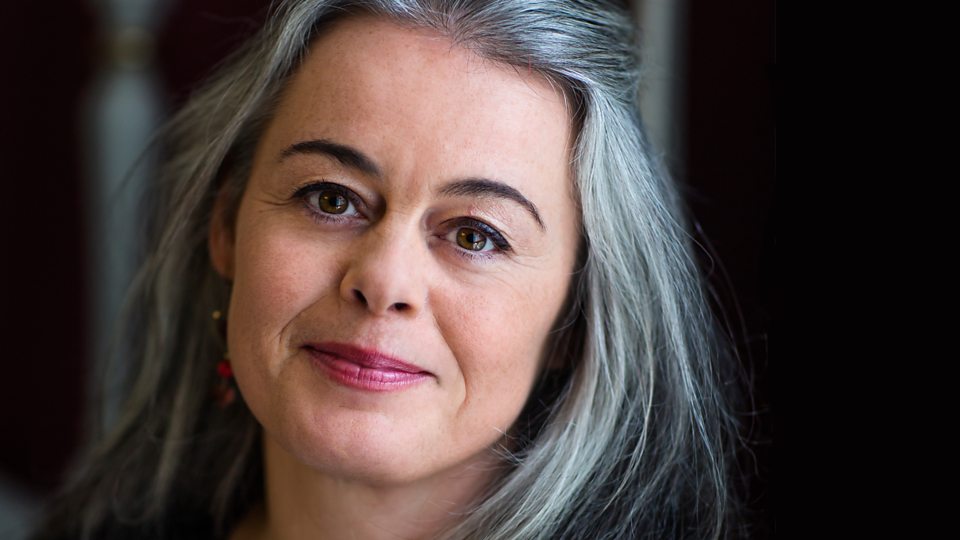Christmas Oratorio, LPO, Jurowski, RFH review - right piece, wrong place | reviews, news & interviews
Christmas Oratorio, LPO, Jurowski, RFH review - right piece, wrong place
Christmas Oratorio, LPO, Jurowski, RFH review - right piece, wrong place
Chorus and orchestra are the brightest baubles on Bach’s seasonal tree

Just when you can scarcely move for Messiahs, two Christmas Oratorios came along at once on Saturday night. That’s London concert schedules for you.
What Jurowski uncovered was the degree to which the cantatas hang together as a hexaptych – and the extent to which they don’t. To serve for Christmas in Leipzig in 1733, Bach adapted the music from three recent secular cantatas. He put his favourite librettist to work for the retexted arias and choruses (Picander, of the St Matthew), fashioned a new tonal scheme, and brought in an Evangelist to tell the story. Yet each cantata was written for a separate day of the Christmas season. On each is bestowed a self-contained dramatic arc.
It may glisten with treasure for the listener like a box of crystallised fruit, but the oratorio sets a stiff challenge for the performers when taken complete
Dove-tailed tempi lent an underlying pulse to the 64 separate movements so that they opened in sequence like the windows of an Advent calendar to illuminate a single Nativity scene. With carefully scaled dynamics Jurowski resisted the law of diminishing returns so that trumpet and drums brought fresh energy to the opening of the sixth cantata, two and a half hours in, rather than a weary sense of enough already.
It may glisten with treasure for the listener like a box of crystallised fruit, but the oratorio sets a stiff challenge for the performers when taken complete. By the time of that sixth cantata the choral tenors were audibly flagging. Not so the trio of trumpeters, led with awesome security in their descant flourishes by Paul Beniston. In fact the most strongly projected moments of joy and rest and occasional pathos were supplied by the concerted forces on stage, constituted by a slimmed-down LPO and a reduced but still healthy, 70-strong contingent of the London Philharmonic Choir, with an alto section discreetly and astutely bolstered by a few countertenors for added bite. A symphonic chorus is well-equipped to handle the unusually orchestral texture of Bach’s choral writing in much of the oratorio; it was only the more traditionally contrapuntal numbers that lacked the freewheeling agility of more compact ensembles such as the Monteverdi Choir or, indeed, the Dunedin Consort over the river. In a splendid snowy-trimmed Mrs Christmas dress (sadly not pictured above), Maria Keohane had exactly the required angelic tone for the scarce soprano solos, at least until she was strained to the limit of her declamatory power by her final aria. If only Bach had not been so considerate of his young charges not to overtax them during an exacting festive schedule. Stephan Loges was a bass of avuncular authority and the alto Anke Vondung grew in both volume and authority through the evening, her every step shadowed by Juliette Bausor’s flute in her moment of glory, the second cantata’s heart-stopping lullaby, but also constrained by Jurowski’s tight directorial rein.
In a splendid snowy-trimmed Mrs Christmas dress (sadly not pictured above), Maria Keohane had exactly the required angelic tone for the scarce soprano solos, at least until she was strained to the limit of her declamatory power by her final aria. If only Bach had not been so considerate of his young charges not to overtax them during an exacting festive schedule. Stephan Loges was a bass of avuncular authority and the alto Anke Vondung grew in both volume and authority through the evening, her every step shadowed by Juliette Bausor’s flute in her moment of glory, the second cantata’s heart-stopping lullaby, but also constrained by Jurowski’s tight directorial rein.
It made good stage sense to tuck the Evangelist in behind the stylish continuo section, but the lively German inflection of Julian Ovenden too often struggled to project even halfway back in the stalls; even duetting at the front of the stage with the polished obbligato violins of Tania Mazzeti and leader Kevin Lim, his tenor was scaled to the performance rather than to the hall. And here’s the Brussels sprout (please, no letters): the Christmas Oratorio in the Royal Festival Hall is as spiritual an experience as hearing Once in Royal... while browsing for bleach (this also happened to me on Saturday).
Everyone on stage had the right ideas, and the tools to put them across. Even the two Christmas trees looked spruce enough. But the piece is imbued with space even more than season, it seems, and it’s a space that may not be mapped onto the brightly lit, functional and deeply secular expanse of the RFH. The pastoral comfort of the second cantata, the philosophical contemplation of the fourth, the urgent anticipation of the coming of Christ in the fifth: all were, if not lost, then muted in translation. Perhaps not coincidentally, it was only in the sixth’s warlike defence of Epiphany’s revelation against enemies from both within and without, and in the final chorale’s anticipation of death and Passion, that the words began to mean something.
rating
Explore topics
Share this article
Add comment
The future of Arts Journalism
You can stop theartsdesk.com closing!
We urgently need financing to survive. Our fundraising drive has thus far raised £49,000 but we need to reach £100,000 or we will be forced to close. Please contribute here: https://gofund.me/c3f6033d
And if you can forward this information to anyone who might assist, we’d be grateful.

Subscribe to theartsdesk.com
Thank you for continuing to read our work on theartsdesk.com. For unlimited access to every article in its entirety, including our archive of more than 15,000 pieces, we're asking for £5 per month or £40 per year. We feel it's a very good deal, and hope you do too.
To take a subscription now simply click here.
And if you're looking for that extra gift for a friend or family member, why not treat them to a theartsdesk.com gift subscription?
more Classical music
 Echo Vocal Ensemble, Latto, Union Chapel review - eclectic choral programme garlanded with dance
Beautiful singing at the heart of an imaginative and stylistically varied concert
Echo Vocal Ensemble, Latto, Union Chapel review - eclectic choral programme garlanded with dance
Beautiful singing at the heart of an imaginative and stylistically varied concert
 Scott, Irish Baroque Orchestra, Whelan, RIAM, Dublin review - towards a Mozart masterpiece
Characteristic joy and enlightenment from this team, but a valveless horn brings problems
Scott, Irish Baroque Orchestra, Whelan, RIAM, Dublin review - towards a Mozart masterpiece
Characteristic joy and enlightenment from this team, but a valveless horn brings problems
 Classical CDs: Voice flutes, flugelhorns and froth
Baroque sonatas, English orchestral music and an emotionally-charged vocal recital
Classical CDs: Voice flutes, flugelhorns and froth
Baroque sonatas, English orchestral music and an emotionally-charged vocal recital
 Kanneh-Mason, Britten Sinfonia, Shave, Milton Court - a grin and a big beaming smile
A pair of striking contemporary pieces alongside two old favourites
Kanneh-Mason, Britten Sinfonia, Shave, Milton Court - a grin and a big beaming smile
A pair of striking contemporary pieces alongside two old favourites
 theartsdesk at the New Ross Piano Festival - Finghin Collins’ musical rainbow
From revelatory Bach played with astounding maturity by a 22 year old to four-hand jazz
theartsdesk at the New Ross Piano Festival - Finghin Collins’ musical rainbow
From revelatory Bach played with astounding maturity by a 22 year old to four-hand jazz
 First Person: Manchester Camerata's Head of Artistic Planning Clara Marshall Cawley on questioning the status quo
Five days of free events with all sorts of audiences around Manchester starts tomorrow
First Person: Manchester Camerata's Head of Artistic Planning Clara Marshall Cawley on questioning the status quo
Five days of free events with all sorts of audiences around Manchester starts tomorrow
 Goldscheider, Brother Tree Sound, Kings Place review - music of hope from a young composer
Unusual combination of horn, strings and electronics makes for some intriguing listening
Goldscheider, Brother Tree Sound, Kings Place review - music of hope from a young composer
Unusual combination of horn, strings and electronics makes for some intriguing listening
 theartsdesk Q&A: composer Donghoon Shin on his new concerto for pianist Seong-Jin Cho
Classical music makes its debut at London's K-Music Festival
theartsdesk Q&A: composer Donghoon Shin on his new concerto for pianist Seong-Jin Cho
Classical music makes its debut at London's K-Music Festival
 Helleur-Simcock, Hallé, Wong, Bridgewater Hall, Manchester review - moving lyricism in Elgar’s concerto
Season opener brings lyrical beauty, crisp confidence and a proper Romantic wallow
Helleur-Simcock, Hallé, Wong, Bridgewater Hall, Manchester review - moving lyricism in Elgar’s concerto
Season opener brings lyrical beauty, crisp confidence and a proper Romantic wallow
 Kohout, Spence, Braun, Manchester Camerata, Huth, RNCM, Manchester review - joy, insight, imagination and unanimity
Celebration of the past with stars of the future at the Royal Northern College
Kohout, Spence, Braun, Manchester Camerata, Huth, RNCM, Manchester review - joy, insight, imagination and unanimity
Celebration of the past with stars of the future at the Royal Northern College

Comments
This was such a deeply